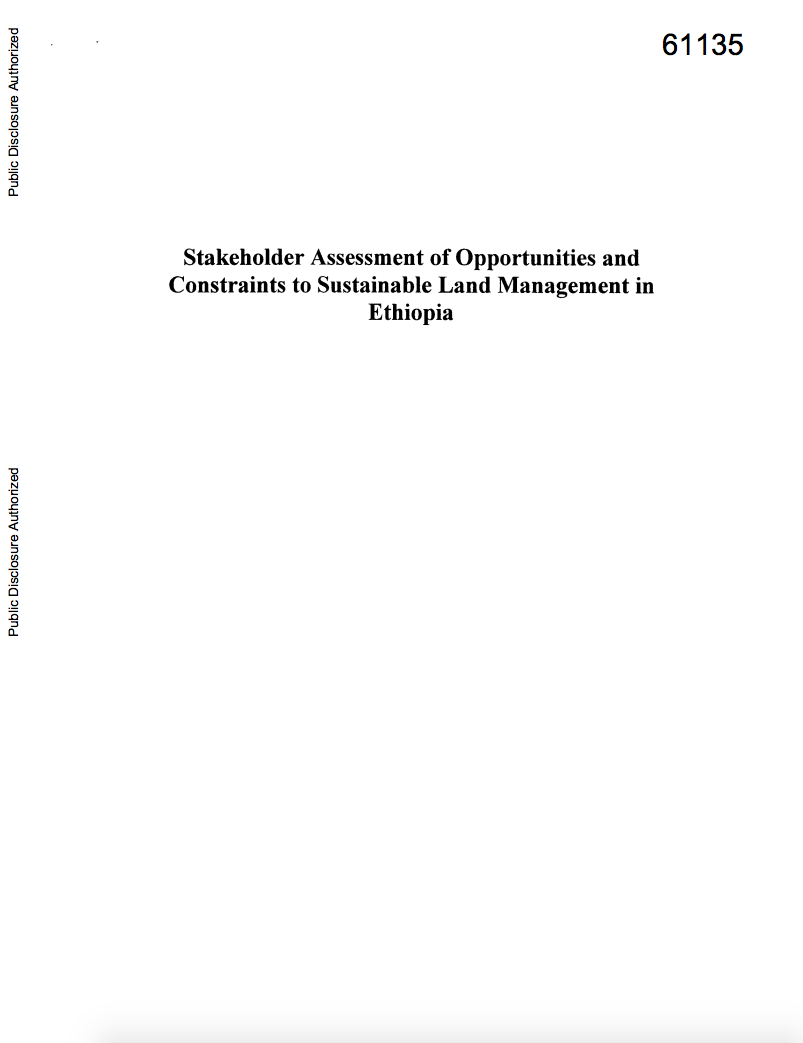Resource information
Stakeholders' perceptions of
opportunities and constraints to sustainable land management
in Ethiopia was assessed through interviews and a review of
secondary data. Stakeholders included farmers as well as
representatives of development agencies, agricultural
organizations, donors, nongovernmental organizations (NGOs),
and agricultural research systems. Stakeholders generally
perceive that the numerous, well-intentioned but piecemeal
interventions undertaken over the last few decades have
contributed little to reversing the negative spiral of land
degradation, for several reasons: 1) the top-down, non
participatory approach was generally unsuited to specific
farming systems; 2) most funding for sustainable land
management (SLM) was channeled to so-called
'low-potential' areas, neglecting
'high-potential' areas where serious land
degradation is now occurring; and 3) agricultural research,
training, and extension were not sufficiently integrated. In
particular, research, training, and extension institutions
are crop focused, top-down, and quota-driven; they lack
institutional linkages with each other and interdisciplinary
linkages within their own walls; and thus they are
ineffective in addressing integrated soil/water and
watershed management issues. According to stakeholders,
participatory, integrated, technically high-quality, and
economically profitable interventions are needed to achieve
sustainable results.


